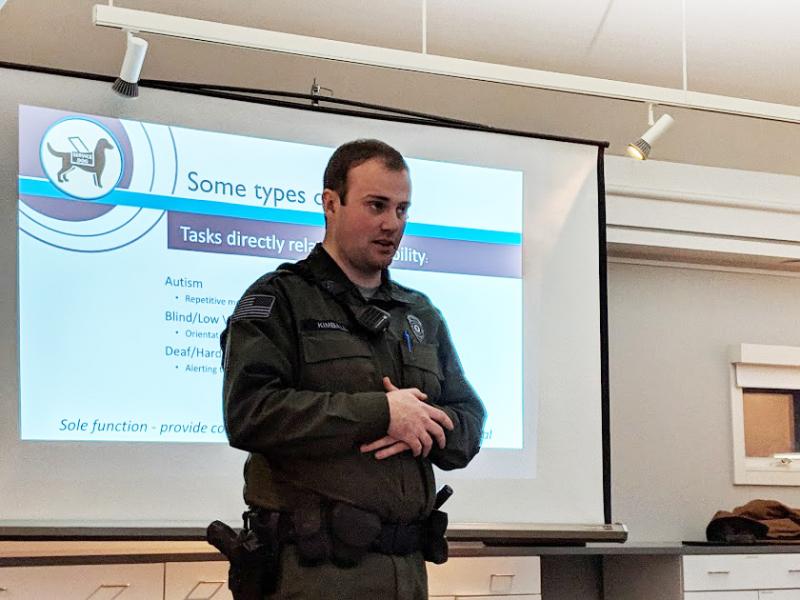Doggy do's and don'ts: Wareham Department of Natural Resources hosts service animal seminar
The Wareham Department of Natural Resources held a seminar on Monday night to help educate business owners and their employees on the ins and outs of customers with service animals.
The seminar was led by Natural Resource Officer Joshua Kimball, who is also a member of the Metropolitan Animal Control Officer's Association.
According to Kimball, there are five kinds of service animals that businesses should be aware of: assistant animals, psychiatric animals, emotional support animals, therapy animals and pets.
Assistant and psychiatric animals are typically dogs or small horses, trained to assist their handlers with day to day tasks or functions that they are unable to perform as the result of a disability.
The obvious example of this is a seeing eye dog for the blind, Kimball said; but some animals are also trained to do things like open doors or provide physical support for people who are unsteady on their feet. He added that not all disabilities requiring a service animal are visible, either, and that some animals might be trained to alert to seizures or allergens.
Under the Americans with Disabilities Act, its unlawful for businesses to deny these types of animals entrance to spaces that members of the public can access. Businesses can charge for damages caused by a service animal, however.
“If a service animal is behaving aggressively, you can also ask them to leave,” Kimball said. “But you still have to offer the person the right to obtain goods and services from your store.”
When in doubt, he added, there are two questions anyone can legally ask a handler of a service animal: Is the animal required for a disability? What services does it perform?
Emotional Support Animals, which provide comfort to their handlers, do not enjoy the same protections as trained service animals, according to Kimball.
They are not allowed in public spaces, but handlers may live in buildings with their Emotion Support Animals that enforce a “no pets” policy.
Companion animals, or everyday pets, are also not allowed in public spaces unless otherwise stated.
Kimball encouraged anyone with questions to reach out to the Department of Natural Resources directly or visit www.americandisabilityrights.org/adr/service-dogs for more information.
He added that each call should be made on a case-by-case basis and that another seminar on service animals would be offered again by the department in the future.













